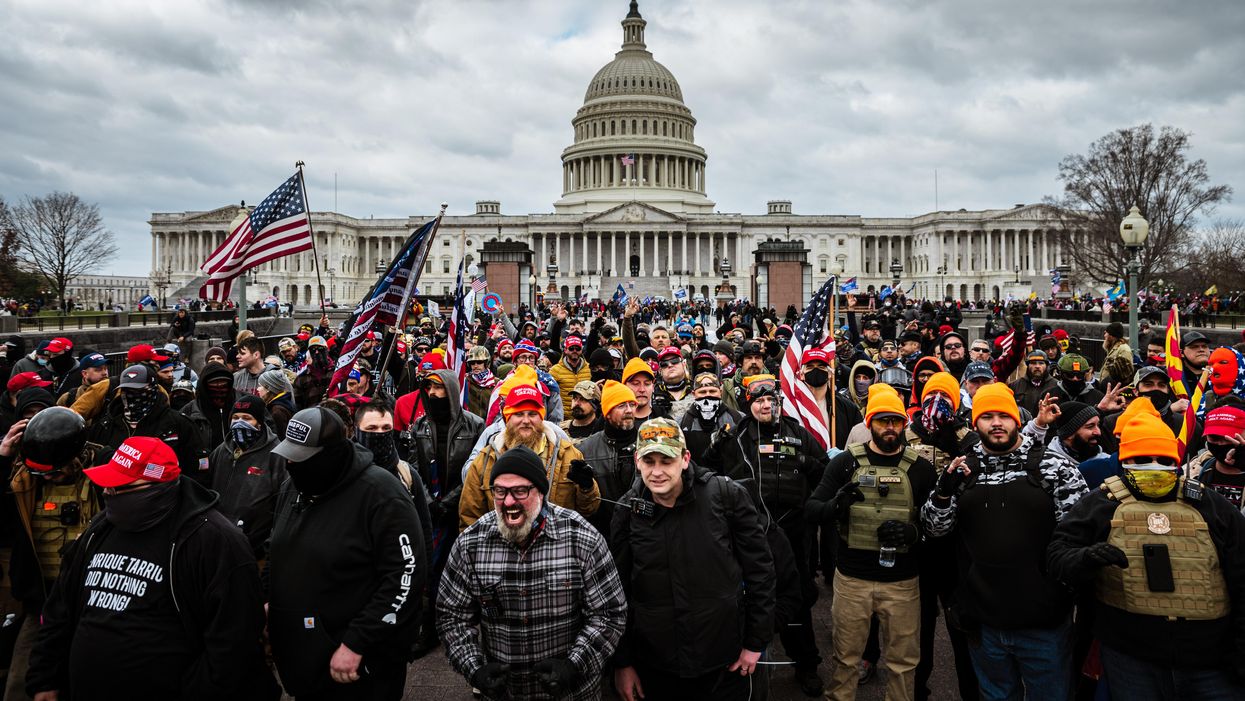Ruiz is CEO of BiasSync, a business that provides online assessments and training to help organizations reduce unconscious bias in the workplace.
There are many who could shoulder the blame for the attack on the Capitol, and many epic intelligence and security failures that remain to be diagnosed. But there is one clear cause for the paltry defense against the insurrection that should not be ignored: unconscious bias. And, more specifically, confirmation bias and affinity bias.
Warning signs were missed and even disregarded, signs that were publicly right in front of so many — and made clear ahead of Jan. 6 that the loyalists to Donald Trump posed a significant security threat.
Science and research show that unconscious biases cause all of us to make decisions about certain groups of people based on the images, messages and reinforced stereotypes we have experienced or been exposed to in our lives.
We know that law enforcement and security agencies are overwhelmingly white and conservative. We know that the participants and the planners of the attack on democracy were also primarily white and conservative. Bias can mean we give people the benefit of the doubt, and even a pass, when they are like us — and that affinity for similarity can be based on race, gender and group affiliation.
Security failures were likely partly due to unconscious race bias, favoring a certain group, and also confirmation bias, which can be defined as the tendency to gather evidence that confirms preexisting expectations — typically by emphasizing or pursuing supporting evidence while dismissing or failing to seek contradictory evidence.
The role of affinity bias, which leads us to favor people we have a connection or similarity to, also should not be underestimated.
To illustrate, compare the security response at the Capitol on Jan. 6 to that of June 1, when a Black Lives Matter rally across downtown Washington drew mainly Black protesters and other people of color.
The Washington Post has detailed the stark differences in the preparation for and resulting security response to each. Before the BLM protest, a secure perimeter was created around the White House and guarded by local police in riot gear, the U.S. Park Police, the U.S. Marshals Service and the National Guard. Despite the lack of any attempt to breach the perimeter, those forces dispersed the crowd by force, hitting them with batons and riot shields and deploying tear gas, flash-bang grenades and pepper balls.
In contrast, days before the pro-Trump rally an FBI report warned of a coming "war on the Capitol." Social media posts called for violence with language such as "Congress needs to hear glass breaking, doors being kicked in, and blood ... being spilled." It was widely known the crowd would include members of such extremist groups as the Oath Keepers, Proud Boys, Boogaloo Bois, QAnon, neo-Nazis and neo-Confederates, many likely armed. Despite this intelligence, when the crowd arrived there were no Capitol Police in riot gear and no backup from D.C.'s Metropolitan Police or the National Guard. Those reinforcements were not activated until two hours after the attack began.
This difference is because of the classic white vs. Black chasm. Studies show a majority of Americans have a negative Black racial bias, meaning they associate Black people with being much more dangerous, violent and more likely to be criminals than white people.
Study after study blames the images and portrayals in the media (primarily news and entertainment) and family belief systems we're exposed to from a young age. They reinforce stereotypes including white is good and Black is bad.
In the days before Jan. 6, the snap judgments many made were based on such stereotypes along with the mental process that "evaluates" what is similar and known to us and what is different from us. That's how unconscious biases work. No one is immune.
Multiple law enforcement officials have belatedly questioned, The Post reported, whether "investigators failed to register the degree of danger because the overwhelming majority of the participants in the rally were White conservatives."
As a result of the failures before and on Jan. 6, at least five people are dead. Had the security apparatus and law enforcement not fallen into racial, confirmation and affinity bias traps, the prime symbol of our democracy likely would not have been desecrated.
A thorough dissection of the decisions made before and on the day the Capitol was defiled must include a real assessment of the role such biases played. This should be followed by a commitment and a plan to mitigate those dangers in the future.
Training, important for education purposes, is not enough. Awareness strategies, such as bias assessments for individuals to understand how their brains work unconsciously, should be deployed. And processes also need to be put in place for objective threat assessments and the development of response plans, especially because high-stress situations amplify the ability for unconscious biases to kick in.
The threat from extremists and insurrectionists has not ended. It cannot be ignored that those who attacked the Capitol intended to capture or kill members of Congress — and that five families lost loved ones. In other words: Our unconscious biases can kill.



















